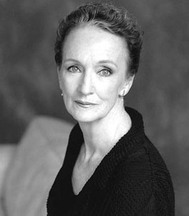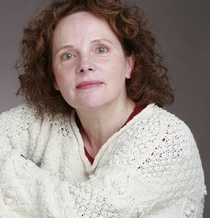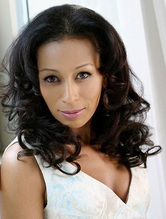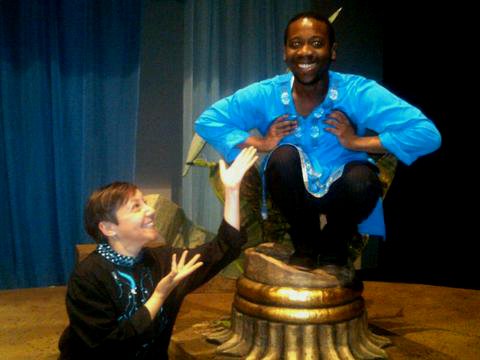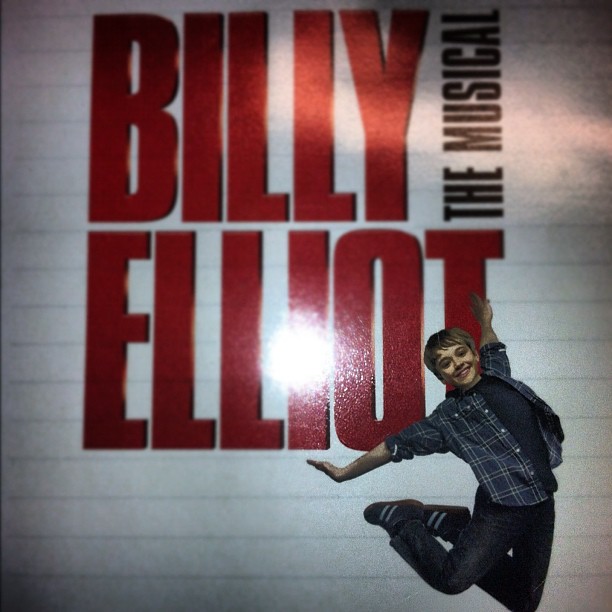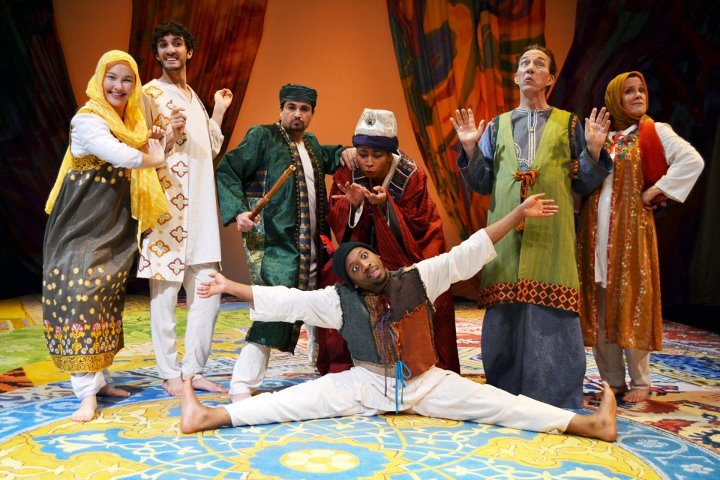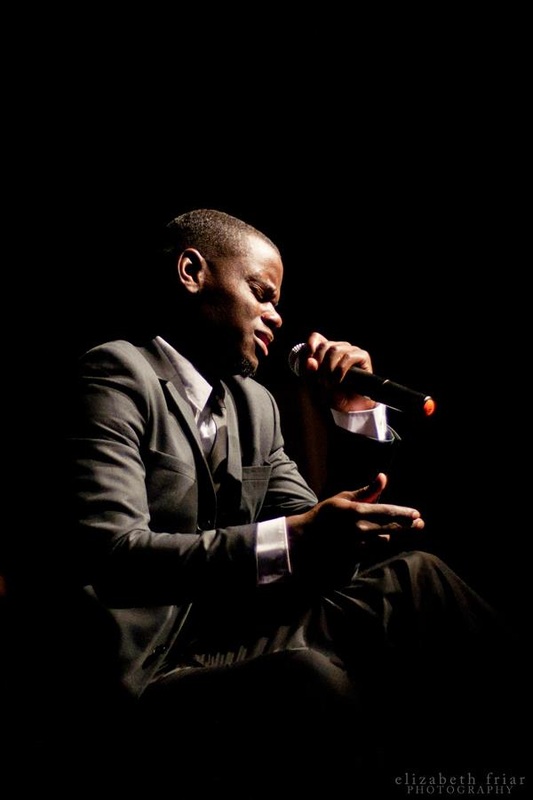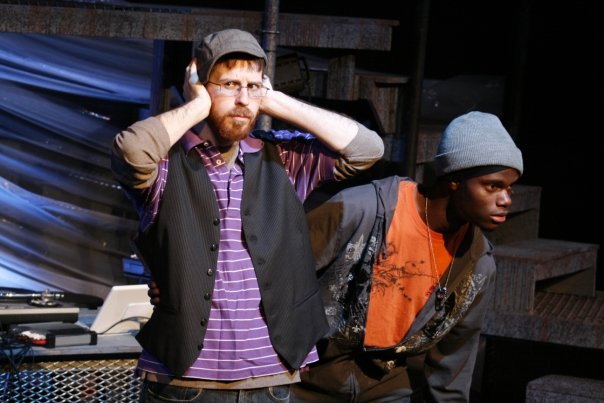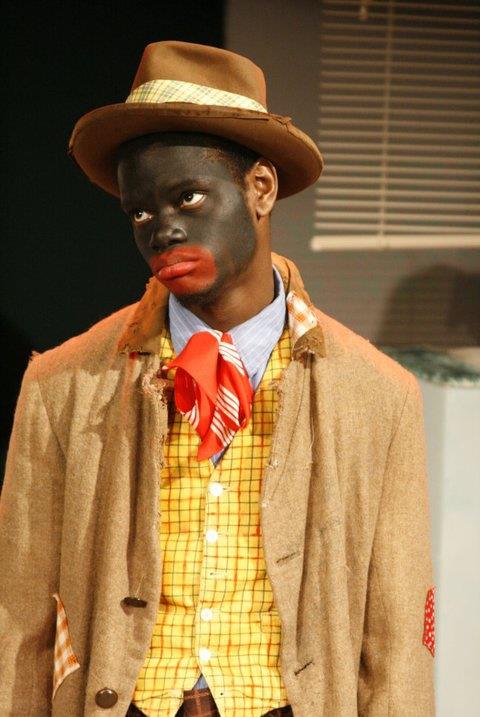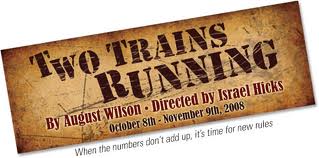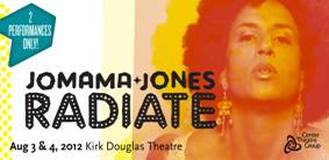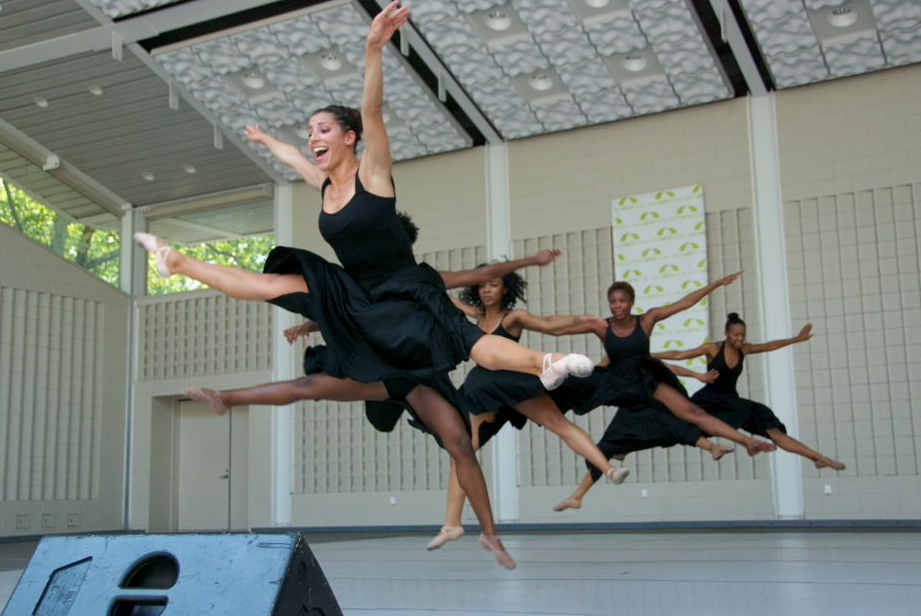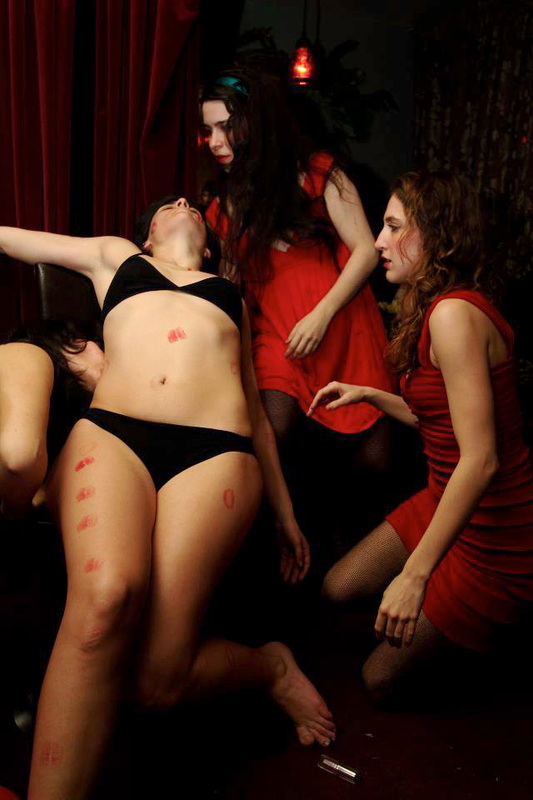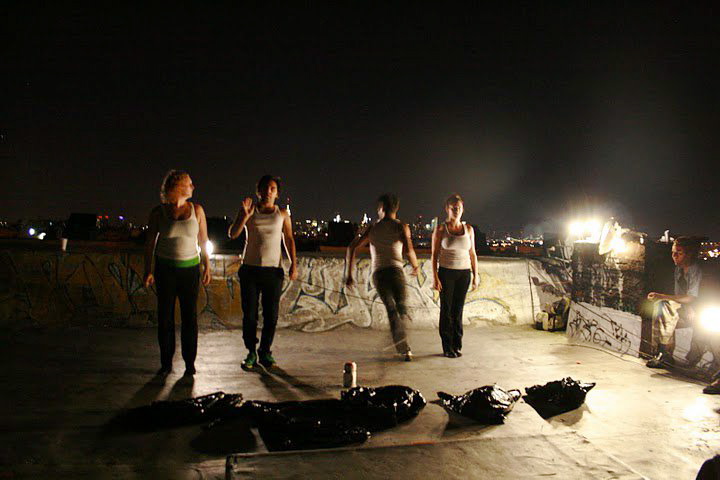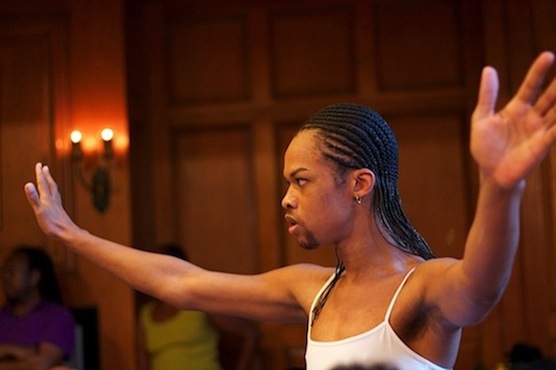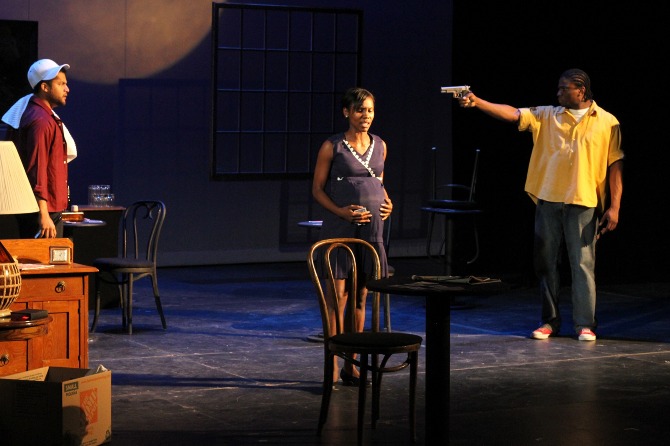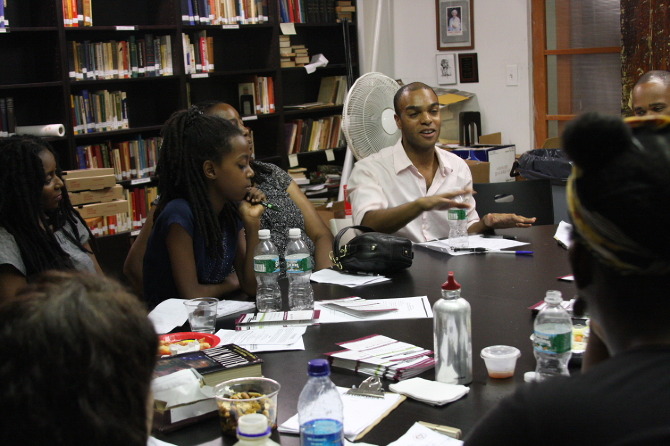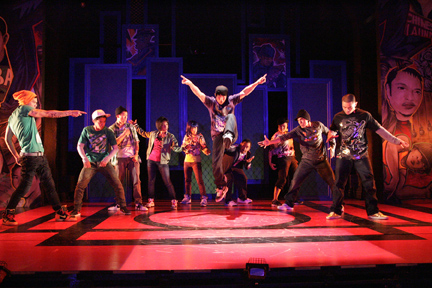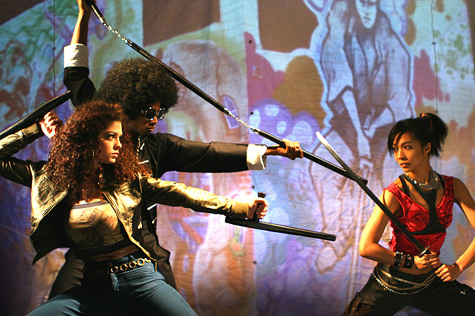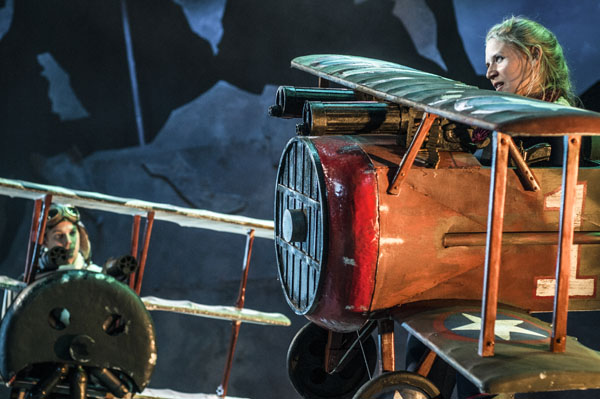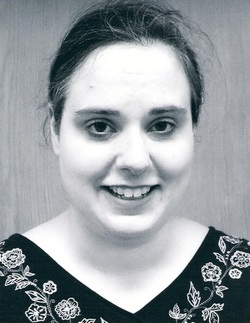 On Sunday, we heard from Heather Violant about her experience researching the Plays and Playwrights for Scenes by Historic Women Playwrights: Read by Luminaries of the Stage Here's a bit more about Heather and her life work: HEATHER J. VIOLANTI is a dramaturg and playwright. She currently works in Dramaturgy and Development for the Mint Theater, an Off-Broadway Theater devoted to bringing new life to lost plays. At the Mint, Heather has dramaturged productions of Love Goes to Press, Temporal Powers, A Little Journey (nominated for a Drama Desk for Outstanding Revival) and Susan and God. As a new play development dramaturg, Heather has worked with playwrights Leslie Kramer, Ethan Sandler, Pia Wilson, Beverly Andrews, and Maureen McManus. As a playwright, Heather’s work has been developed by New Perspectives Theatre Company, terraNova Collective and MusicalFare Theatre. She has an MFA in Dramaturgy and Dramatic Criticism from Yale School of Drama. Also, I had the opportunity to speak with Heather about working with the History Matters/Back to the Future Steering Committee and their efforts to bring this great event to DC. Enjoy! Interview with History Matters/Back to the Future Dramaturg: Heather Violante Jacqueline Lawton: History Matters: Back to the Future is an organization committed to introducing “women’s plays of the past in colleges and universities and theatres throughout the country and encourages responses to those plays from contemporary women playwrights.” What a magnificent mission! Brilliant, bold and absolutely necessary. Tell us, what do you feel contemporary artists and audiences can learn from these stories? Heather Violanti: Contemporary artists and audiences can be inspired by each of these plays and their authors—each play tells a compelling story and packs a powerful message. Angelina Weld Grimké responded to the bigotry of Birth of a Nation by writing Rachel, a powerful anti-lynching play that was performed by schools and little theatres across the country. Each playwright overcame incredible odds to write plays and have them produced. When Broadway producers turned down Trouble in Mind, Alice Chidress’s piquant comedy about an African-American actress cast in a “progressive” play that turns out to be anything but progressive—Chidress had it produced Off-Broadway at the Greenwich Mews Theatre. Trouble in Mind by Alice Childress uses satiric humor to tackle racism in American theatre in a way that predicts Meet Vera Stark by Lynn Nottage…it would be great to see these plays in rep today. JL: The selected scenes are really wonderful and from a body of plays that are rich, diverse, and compelling. Really, these women are exceptional writers! If you had to pick a favorite which would it be and why? HV: It’s hard to pick a favorite—I love them all! My favorite is Trouble in Mind because it’s so heartbreaking and devastatingly funny all at once—I wish I had seen the recent D.C. production. JL: Why is important to have as many plays studied, commissioned and produced by women as there are by men? HV: Women are over half the world’s population—if you don’t have plays by women, you miss half the world’s story—that’s something pointed out by Melody Brooks, Artistic Director at New Perspectives Theatre, where I am a member of the Women’s Work Lab. We don’t get the whole picture without women—and women’s plays can offer a distinct point of view that might get overlooked. Take Plumes by Georgia Douglas Johnson—it begins with two women in a kitchen, sewing—a domestic scene rife with precise details that bring home the despair and poverty of the characters—and their smalltalk quickly reveals the life and death struggle at stake. JL: Why do you think gender parity remains such a struggle in this country? HV: I think it’s hard to break the centuries old “old boys’ network”—and to break the mistaken perception that plays by women just aren’t as good or interesting. JL: What advice do you have for young feminist artists? HV: Be assertive in making your art, put yourself and your work forward, and don’t be afraid. Don’t compromise your artistic vision—if you have a big, bold idea, go for it! Tomorrow's the big day and I can hardly wait! We're going to hear from Alli Houseworth, who's been working hard to spread the word about Scenes by Historic Women Playwrights: Read by Luminaries of the Stage to the greater DC area!
Then, after teaching at the Smithsonian Associates summer camp, I'll be heading over to Dupont for a dinner and drinks with few fabulous DC women and then we're cabbing it over to Georgetown! It really doesn't get much better than this!
0 Comments
 When I first learned about Scenes from Historic Women Playwrights: Read by Luminaries of the Stage, I was excited! As an artist hungry to experience the work of great artists, as a race conscious feminist playwright, and as a black women living in DC, I knew this was an event that I had to attend. When I discovered that Jill Dolan was a part of the Steering Committee, I reached out to her immediately and told her I would be there. Then, I took to Google and learned as much as I could about both History Matters/Back to the Future and ATHE's Women and Theatre Program. But it wasn't enough. The dramaturg in me wanted to know more. I wanted to know how this amazing event came together. I wanted the Behind the Scenes as it were! And as luck would have it, these lovely, brilliant, and extraordinary women were more than happy to tell me. With all they have to do on any given day, they granted me an interview and I have it here for you now! Please enjoy! Jacqueline Lawton: Scenes by Historic Women Playwrights: Read by Luminaries of the Stage is an extraordinary, timely, and important event. The title alone makes me want to be there front row center! Thank you for bringing it to DC. Now, tell me, what role did you play in making it happen? Jill Dolan: Joan Thorne was the moving force behind this event. She’s been working on “History Matters” for years; I had my first conversation with her about it several years ago when I began teaching at Princeton. I believe I put Joan in touch with Jen-Scott and the other Women and Theatre Program people, since I felt that the WTP would be an excellent venue for doing the kind of educational work to which “History Matters” is committed. It’s turned out to be a happy partnership. This panel and reading at the conference in DC is the first public collaboration; I hope there will be many more. Jann Leeming: Meetings with other Committee members discussing mission and this event and budget. I'm a big supporter of Joan Vail Thorn who has been championing this project. When Joan asks for something, I say "yes". I provided much of the money needed to support the event. Helen Mills: I am a business person by training with a love of theater. I believe my contribution has been to offer a business person’s perspective as we developed our mission and set our goals. My fellow committee members each brought their unique gifts to the project. Each meeting and round of correspondence resulted in progress and, for me, a great education and joyful collaboration. Jen-Scott Mobley: You know, I can hardly say! I am currently Vice President of the Women & Theatre Program of ATHE (association for theatre in higher education). As an organization Women & Theatre promotes women in all areas of theatre from playwriting to directing to theatre for social change, feminist theatre activism, and of course, theatre studies in higher education. We are also home to the Jane Chambers Playwriting Award for student and professional feminist playwrights and our goal there is to promote contemporary female playwrights as well as female centered plays & roles for women through holding a yearly contest, giving out awards, and making sure the winning plays are read and circulated. So the Jane Chamber is kind of the “Future” in History Matters/Back to the Future. We want to facilitate more women writing and being produced. But, back to my role… Jill Dolan, one of the founding members of WTP connected Joan Vail Thorne and Jann Leeming and Ludovica and the rest of the History Matters crew to WTP knowing that there was organic cross-pollination between the groups and that we could facilitate History matters establishing themselves as an organization. We have an annual conference in conjunction with ATHE and we decided this would be the place for an inaugural event. The members of WTP are already invested in this mission and many of us are professors of theatre and directors and thus, we are in a unique position to help circulate this material and make it happen. We want our students to be exposed to the plays by women as a matter of course that many of us were not exposed to as undergrads. Click here to learn more information about WTP and Jane Chambers. Joan Vail Thorne: Having watched distressing statistical reports on the persistent disparity between men and women playwrights come and go for decades and having heard and felt the understandable and anguished complaints from contemporary women playwrights because of that disparity, I began to wonder if it might be directly connected to the glaring neglect of women playwrights of the past. I thought that perhaps if we could change some of the complaint to celebration of the classic women’s plays we might serve both the past and the future. Thus the title: History Matter/Back to the Future. I gathered a small but remarkable group of resourceful women that included Jill Dolan of Princeton who suggested that to serve our goal we might reach out to the WTP of ATHE, and they welcomed our idea of a “celebrity” reading of scenes from some of those plays. Ludovica Villar-Hauser: While I'd like to say that I played an important role in bringing about the wonderful event on August 1st in Washington, DC - I cannot. Joan Vail Thorn has put together an amazing team and has done the bulk of the work. I think my biggest role was simply being a part of tate team Sometimes coming up with ideas - much more in the background than I would normally be on a project. JL: You’ve selected dynamic scenes from a rich, diverse, and compelling body of plays. What do you feel contemporary artists and audiences can learn from these stories? Jill: In my decades of teaching and writing about women in theatre and performance, and in thinking about feminism, I’m struck again and again by how quickly history just disappears. Generations of students don’t know what’s happened 10 years prior; their historical knowledge seems to get ever shallower. The conversation about women in theatre history was begun by feminist scholars in the late 70s, but already, when we talk about the lack of progress for women playwrights and other theatre makers, we too often forget to put this struggle in an historical context. Our hope with “History Matters: Back to the Future” is that contemporary artists, students, and audiences will be excited by work from the early 20th century, and make connections among the themes and contents historical women explored and those still being addressed by current playwrights. We have a history—it’s important that we consider it a “usable past.” Jann: Everything. The stories of life from a female perspective. Men are from Mars and Women are from Venus has become a cliche for a reason. Men and women are different in the way they approach most things in life. Jen-Scott: I think the significance of established and up-and-coming female artists seeing their history cannot be under-valued. We take for granted that what we have been taught is our American theatre history IS the history and until recently, women’s work has been almost completely absent from that. Just as it’s valuable to look at an O’Neill play and trace his influence to Sam Shephard’s work, it is valuable to look at Rachel Crothers’s work and see her influence on—or make connections between—Wendy Wasserstein or between Mary Chase and Sarah Ruhl. Women are over half the population of the country and yet the majority of those telling our stories dramatically are still men, and certainly, for some reason, the plays written by men seem to be canonized in a way that women’s plays are not. These plays are part of our cultural history and women must be recognized in it. Joan: Contemporary artists and audiences can learn that great stories never stop “telling” and that they never stop being “telling” and that there are truly great stories to be told in the plays of the great women playwrights of the past. Women artists can be proud and confident that they are standing on the shoulders of giants who have been buried in the dust of an unjust and underserved neglect. Audiences can rejoice that buried treasure has been found and is there for them to enjoy. Ludovica: Knowing one's past helps us to better understand our present and, hopefully, to create a better future. I also firmly believe that we can learn from the failures and successes of others and that it is easier for us to know who we are if we know where we come from. Wouldn't it be fascinating to learn the history of women in the theatre from the beginning of time? Perhaps we'd find a quicker way to parity! JL: Why is important to have as many plays studied, commissioned and produced by women as there are by men? Jill: To me, this is about whose stories get told and how, and to whom. It seems a cliché now to insist that “diversity matters”—it’s become an empty statement, like a bumper sticker that everyone now ignores. But in practice, it’s still true and too often is realized. If only white middle-class heterosexual men are telling stories on stage, then American theatre is representing a tiny slice of its grandly differentiated population. If we hear new stories, we learn different ways of being in the world; we learn that other people have different values and traditions; we learn how we’re different and how we’re similar to one another. This is true in any representational medium, be it theatre, performance, dance, film, or television. How is narrating the story of our lives? Whose bodies do we see enacting these stories? What do they look like? In what spaces and places do they move? Do they challenge our ways of seeing the world? Do they affirm our differences or do they humiliate us? These are some of the questions provoked, for me, by yours. Jann: Female stories deserve to be told just as men's stories deserve to be told. Otherwise, the audience gets a very biased view of the way the majority of people in the world operate. There's a huge potential audience for female written plays. Most theater attendees are women, so financially for theater producers it makes sense to have women's play on stage. There's a ready market out there! (and I, for one am sick of only seeing men on stage!). Helen: We use theater to understand the human condition, which requires both the male and female voice in equal measure. Jen-Scott: US population is over 50 percent women but so many of our extant cultural texts are written by men. Why is Arthur Miller’s Death of a Salesman—a play largely about a fathers and his sons, an “American Classic” that speaks to all, but Marsha Norman’s ‘Night Mother is “feminist play” because it is about a mother and daughter and therefore would only be of interest to women? How can we be half the American family but our stories are not considered universal enough to be part of the American canon? Joan: Because one can’t respect or respond to what one doesn’t know! The works of women of the past aren’t known. Ignorance is loss not bliss Ludovica: Oh, my don't get me started PLEASE. Look around. The world is a mess. Don't you think that by including ALL of humanity in ALL phases and experiences we'd stand a better chance? I believe we need to start focussing on the things we have in common and forget about causing rifts by our apparent differences. We are missing out on SO much in life but excluding women. I'm a little more extreme than most of the team and believe that it is time for AFFIRMATIVE ACTION. JL: Why do you think gender parity remains such a struggle in this country? Jill: I don’t think the feminist movement ever achieved the success that the media proclaimed. Before feminism really got off the ground in the U.S., the media was declaring it a fad, a trend that had run its course. The public debate turned into one about whether or not women could “have it all,” which was an utter bastardization of the varied, nuanced, much more radical platform that 1970s American feminism advanced. As a result, American culture has really never done more than give lip-service to gender issues. Yes, Title IV has made a huge difference; yes, affirmative action has mattered a lot, as have a bunch of different policies and legislative initiatives. But on the whole, I don’t think American culture has given up privileging white hetero men as its power base and as the arbiters of taste and narrative. So much work remains to be done. Jann: Discrimination: There is discrimination everywhere in our culture. Men support other men in every way possible. It's comfortable for them to support each other. They speak the same language and have similar values and likes and dislikes. It may even be subconscious in some cases. And men are still in the majority when it comes to leading the government and companies of all sizes. Lack of support for families: The government and companies do not support families adequately. Every organization should have childcare facilities readily available to their employees and should be encouraging both men and women to take advantage of services offered. Women do not use their financial power effectively: Statistics show that in the US women control or influence how 75 to 80% of consumer money is spent. Men think "shopping" is a women's job. Women could change anything they chose to just by buying or not buying. Unfortunately, they don't use that power to reward or punish companies selling products and services to them. Helen: Gender parity is a struggle all over the world. It involves the sharing of power and decision making which is not easily achieved. Accomplishment paves the way and I think we are doing pretty well in this country considering women couldn’t even vote a short historical time ago. I am encouraged each day. Jen-Scott: I really don’t have a good answer for that. I don’t think men are “out to get us.” I just think traditions are profoundly ingrained in us. Culturally dictated behavior is deeply embedded and we still do not questions gender assumptions as much as we should. We still teach our kids gender behavior and make assumptions about male/female including the idea that women write differently –which in some cases may be true—female playwrights such as Suzan-Lori Parks, Paula Vogel, and Sarah Ruhl are pioneers of dramatic form. But because the forms may be innovative sometimes the assumption is that they are “not as good” as men. Joan: Why indeed?! Power if precious to those who hold it, and women only began to systematically oppose the power mongers about the time St. Joan was canonized. Ask more questions! Don’t live with worn out answers! Know that you were preceded by masters who were women. Celebrate that fact. Ludovica: From what I understand, a big section of this large country is still quite conservative. People are always afraid of change - afraid that things might become worse - transition is usually bumpy - but without change we will continue as we are and for many of us that is completely unacceptable. It's like ignoring the existence of a fertile section of one's garden but continuing to starve. Do you have any idea of what incredible potential we are missing out on? JL: What advice do you have for young feminist (theatre) artists? Jill: Be an artist and an activist. Know how to advocate not just for yourself and your own work, but for the whole project of women in the arts. Stay informed. Read American Theatre Magazine and make sure you subscribe to feminist blogs, so that you’ll know what’s going on not just in theatre but in the rest of the world (and not just the U.S. either). Read read read—read history; read plays by women from other countries; read plays by people who aren’t like you; go see everything you can. Develop your own analysis, and a sense of the particular contribution your art will make to culture. What stories are you telling? To whom? How? Be self-conscious about your choices. Art doesn’t happen in a vacuum. Find community with other artists and scholars and critics; extend yourself across media, so that you’re speaking with filmmakers and video artists and dancers, as well as theatre people of all stripes. Practice speaking to fundraisers—know how to pitch not just your projects, but the larger issue of women and their place in theatre and society. Be articulate and take every opportunity to get the word out. Jann: Keep talking, keep writing, keep telling the truth. Helen: Young feminist artists should get their plays before the public in whatever venue is available, no matter how small their budget or audience, not worry about the reception and keep at it. Jen-Scott: Find your community; don’t work in a vacuum; get support. This is why it is so great that History Matters is working with WTP who also works with “50/50 in 2020” and the “Legacy Project” headed up by Susan Jonas. We all have the same goals and we have more momentum as a group than as individuals trying to reinvent the wheel on our own. Support other female artists. See their work and teach their work. Talk to each other. And keep writing, keep directing, keep questioning. I actually am very optimistic that things have improved and will continue to improve for female theatre artists. Joan: Ask more questions! Don’t live with worn out answers! Know that you were preceded by masters who were women. Celebrate that fact. Ludovica: Well, for starters I'd say tell your friends and colleagues not to be afraid of the word "feminist" (A feminist is "an advocate or supporter of the rights and equality of women") - so many young people, I have found, are super uncomfortable with the term, are unaware of the issues - hence don't believe they exist - and probably won't realize until it's too late. Young feminists might think about supporting the works of women artists (there are many ways i.e. the Womens Project, Works by Women - join organizations which advocate for women artists such as the League of Professional Theatre Women and so on and so forth. Make sure that they are receiving the same pay as their male counterparts. Most importantly - keep on doing the work!!! Scenes by Historic Women Playwrights: Read by Luminaries of the Stage takes place on Wednesday, August 1 at 7:30 p.m. at the Davis Performing Arts Center’s Gonda Theatre (Georgetown University). This exciting and not-to-be-missed event is brought to you by the combined efforts of History Matters/Back to the Future and Women and Theatre Program. History Matters/Back to the Future promotes the study and production of women’s plays of the past in colleges and universities and theatres throughout the country and encourages responses to those plays from contemporary women playwrights. Scenes by Historic Women Playwrights: Read by Luminaries of the Stage is their inaugural event and is featured as part of the 2012 Association for Theatre in Higher Education (ATHE) annual conference. The Women and Theatre Program is a self-incorporated division ATHE. Founded in 1974, their mission is to bring theater professionals together with academics and activists. Also, WTP, in collaboration with ATHE, sponsors the Jane Chambers Playwriting Award. The continuing goal of WTP is to enable feminist inquiry and to provide opportunities for discussion between those who teach, perform, and theorize about feminism, theatre, and performance. The aforementioned luminaries of the stage are acclaimed New York-based actors Kathleen Chalfant, Maryann Plunkett and Tamara Tunie. And now, without further ado, please allow me to introduce you to the Steering Committee, the dynamic, extraordinary, and generous women behind this event! 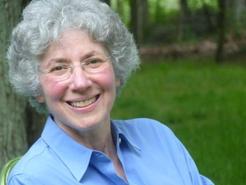 JILL DOLAN is the Annan Professor of English, Professor of Theatre, and the Director of the Program in Gender and Sexuality Studies at Princeton University. She is the author of The Feminist Spectator as Critic (1988), to be released in 2012 in an anniversary edition with a new introduction; Theatre & Sexuality (2010); Utopia in Performance: Finding Hope at the Theater (2005); and many other books and articles. Her blog, The Feminist Spectator, www.feministspectator.blogspot.com, won the 2010-2011 George Jean Nathan Award for Dramatic Criticism. She received the 2011 Outstanding Teacher award from the Association for Theatre in Higher Education. 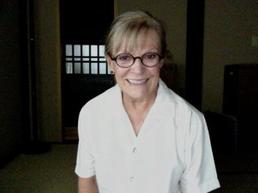 JANN E. LEEMING graduated from the University of Rhode Island with a degree in Psychology/Business and Babson College with an MBA. She started her professional career with 8 years in the venture capital industry, investing in high technology companies located in New England. She left the institutional world of venture capital to start her own company to specifically invest in companies owned and operated by women, and served as CEO. Presently, Jann is a full time philanthropist and uses her investing, marketing, accounting and management expertise in supporting organizations in performing arts, education and the environment. She currently serves on the following non-profit Boards: The Little Family Foundation, Women’s (theater) Project, Celebrity Series of Boston, Mint Theater, and The League of Professional Theater Women. She is a proud member: "History Matters/Back to the Future", the initiative headed by Joan Thorn to get plays written by women included on college curriculums. “I supports initiatives like "History Matters/Back to the Future" because I support intelligent, hard working, smart women. It's what I’ve been doing since the days when she invested in companies owned and operated by women in the late '80s. I love theater and working with theater professionals. I am a non-apologetic feminist who knows how important it is to support deserving, entrepreneurial women financially." 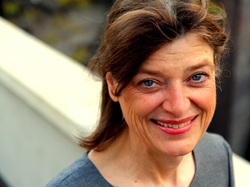 HELEN J. MILLS has over 30 years experience investing and managing real estate in New York and the surrounding area and has devoted herself as a volunteer to a wide range of civic and community organizations, both in New York and her native Kentucky. A lover of business and the arts, Ms. Mills co-founded in 2005 the Helen Mills Event Space and Theater, a special event venue in New York that hosts a variety of corporate, social, non-profit and arts events. A year earlier, in 2004, Ms. Mills founded offoffonline.com, an off-off Broadway listing and review website. Prior to co-founding her real estate business in 1979, Ms. Mills, a CPA, was a senior auditor at Arthur Young & Company (now Ernst & Young) in New York. Before joining Arthur Young in 1975, Ms. Mills was an auditor for the Internal Revenue Service in New York where she acted, first, as a collection officer and, then, as a revenue agent. Ms. Mills is also a member of the Board of Trustees of New York Live Arts, a live performance arts organization, as well as a trustee of the Baruch College Fund in New York. For the past ten years, Ms. Mills has served as a Union College board member with great pride and honor. 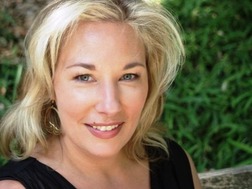 JEN-SCOTT MOBLEY is a visiting professor of theatre at Rollins College and holds an M.F.A. in dramaturgy and theatre criticism as well as a Ph.D. in theatre studies. She is Vice President of the Women & Theatre Program of ATHE. As a performer, director, and dramaturg she has worked regionally and in NYC on material ranging from Sam Shepard to Shakespeare as well as new work by women. She has acted as the student coordinator as well as finalist judge for the Jane Chambers Feminist Playwriting Contest. Areas of scholarly interest include American theatre, feminist theatre, and the theatre’s position within culture and community. More specifically, I am interested in the female body in performance and in interrogating cultural constructions of fat in representation and the ways in which that intersect with questions of gender, class, race, and cultural attitudes in America. Jen-Scott is also an associate artist and member of the NYC-based White Horse Theater Company. 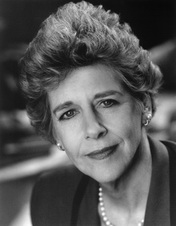 JOAN VAIL THORNE is a director, playwright and librettist. She has directed for The Alley of Houston, Arena Stage in Washington, D.C., Dallas Theater Center, Emelin Theatre, Ensemble Studio Theater, Florida Stage, People’s Light & Theatre Company, and Women’s Project. Her plays include The Exact Center of the Universe, starring Frances Stenhagen, nominated for an Outer Critics Circle Award; The Things You Least Expect produced by George Street Theatre; The Anatomy of a Female Pope, workshopped by New York Theatre Workshop with Kathleen Chalfant. She was written opera libretti for composer Stephen Paulus: Summer, adapted from Edith Wharton, premiered by Berkshire Opera and The Woman at Otowi Crossing, premiered by Opera Theatre of St. Louis, and texts for narrator and orchestra, Voices from the Gallery and The Five Senses. Her screenplays include High Cockalorum and The Living, adapted from Annie Dillard, commissioned by CPB. She has also written and directed two short films, Last Rites, seen on PBS and Secrets, seen on Cinemax. Ms. Thorne has taught on the faculties of The Juilliard School, Pace University, Playwrights Horizons Theatre School of NYU. She is a member the Dramatists Guild, SSDC, The League of Professional Theatre Women and Women’s Project. 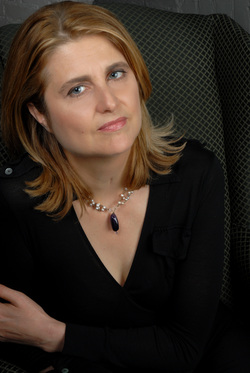 LUDOVICA VILLAR-HAUSER's directing highlights include: Eugene O’Neill’s Long Day’s Journey into Night in London’s West End; 3 productions at The Edinburgh Fringe Festival; the premiere of Gregory Murphy's The Countess, which ran Off-Broadway for 634 performances and in the West End; Rona Munro's Bold Girls at the 29th St. Rep.; the premiere of Duet by Otho Eskin, a new play about Sarah Bernhardt and Eleonora Duse; the North American premiere of Leaves of Glass by Philip Ridley; and as part of Origin’s First Irish Festival's production of Derek Murphy's A Short Wake; As It Is In Heaven by Arlene Hutton, produced by 3 Graces Theater Co at The Cherry Lane Theatre. For The American Academy of Dramatic Arts, Enchanted April by Matthew Barber, from the novel by Elizabeth von Arnim (2010 Company) and The Heidi Chronicles by Wendy Wasserstein (2012 Company). www.directedbyludovica.com Tomorrow, I'll post more about the brilliant and talented Playwrights being featured in this event and you'll want to check back here on Monday to read the Behind the Scenes interviews of the Steering Committee!!
 Recently, I was introduced to this poem by the great mystic poet Rumi: “Forget safety. Live where you fear to live. Destroy your reputation. Be notorious." Be notorious. This missive stayed with me. It haunted, excited and scared me. It comforted, confused and annoyed me. Then suddenly it occurred to me why all of these intense and mixed emotions had hit me all at once and plagued me so immensely. Be notorious is what I’d been told to do my entire life. When I was 8 years old, I told my Mama that I wanted to sing and dance and act on the stage. To my surprise, she was none too pleased and said something to the effect of, “No, I don’t want you to do that. The world doesn’t expect Black folks to be good at anything other than singing, dancing and acting a fool for them to laugh at.” Wait a minute, what? If it’s what I want to do and the world expects me to do it, then what’s the problem?!?! Color me baffled! Flash forward to the end of 5th grade: On the last day of school, I told my beloved teacher, Mrs. Link, that I would miss her over the summer and wanted to be a teacher just like her when I grew up. I smiled waiting for some sign of blissful and inspiring approval. Instead, she kneeled down to meet me at eye level and said, “No. Don’t become a teacher. You have too much to offer the world, far more than I ever did. Don’t waste it.” Wait a minute, what? You’re an amazing teacher! You’ve taught me all kinds of really great things! You’re nice, friendly and have such a bright and colorful room! Why wouldn’t you want me to be that to some other little kid someday?!?! Color me perplexed! Obviously, when my Mama and Mrs. Link shared these pearls of wisdom, they were coming from a place of love and, more importantly, from a deeper understanding of race, class, and gender politics of the world. Unfortunately, their well-meaning words were far too grown-up for my supple young mind to comprehend. And to be honest, it wouldn’t be until I attended college and graduate school at the University of Texas (UT) at Austin that much of what they were trying to say about being a Woman, being Black, and being a Black Woman started to make sense. It was at UT, that I studied with such amazing artists, scholars, and social activists as Jill Dolan (feminist scholar), Fran Dorn (actress), Amparo Garcia-Crow (playwright, director, producer and actress), Joni Jones (playwright and performance ethnographer), and Ruth Margraff (playwright). These women cracked open my core, shook things up, and poured me back into myself. They saved my life. They taught me that the very act of embracing, developing and standing up for my voice was a simple and necessary act of notoriety. One, that the world needed much more of, if we were ever to truly see progress for women and people of color. Today, I define myself as an artist, specifically a race conscious feminist playwright. When pushed toward social specificity, I’m a Black Woman Playwright. When pressed for political identification, I'm an African American Female playwright. And when faced with some hot mess patriarchal, sexist, racist foolishness, Imma Nigress, whose word is her sword: be warned! I say all of this to prepare you for what’s ahead. On Wednesday, August 1st at 7:30pm a revolution is coming to DC: History Matter/Back to the Future presents Scenes by Historic Women Playwrights: Read by Luminaries of the Stage at Georgetown University. Over the next several days, I’m going to introduce you to the Steering Committee, the brilliant women behind this event and the great work they’re doing in support and promotion of women playwrights. You'll get to read a Behind the Scenes Interview, meet the lovely Dramaturg and learn more about the amazing playwrights whose works are being featured. So clear your calendars, folks, and stay tuned! Jacqueline Lawton: Give us a little background on where you’re from originally, where you grew up, and how you ended up where you are now…
Elbert Joseph: My family is from Trinidad and Tobago. I was born in New York City and grew up in Boston. Boston is very strong diversity and arts community. JL: Why did you decide to get into theater? Was there someone or a particular show that inspired you? EJ: I decided to be an actor at age 12 after seeing Peter Pan. I wrote the casting director for the Wheelock Theater and told her that I wanted to be an actor. She cast me as a munchkin in the Wizard of Oz. The theatre transformed my life. It taught me that there are many kinds of people in the world and I no longer felt so alone. JL: What is unique about being an artist where you live? EJ: You are in place where it has a strong community that support diversity in arts and very dedicated to it. However, it will get there when all for one, one for all, meaning every artist of diversity would able to get a job in arts community. JL: You are an actor and Sign Language theatrical Interpreter and Coach. What advice can you give to theater companies wanting to work with Deaf Actors, Designers, Directors, etc.? EJ: My advice for theaters is to have patience, share knowledge and work together as artists. If you do and you respect each other, you’ll achieve success in the working environment and grow as a community. JL: Who nominated you to be a Young Leaders of Color Award Recipient EJ: Christopher Robinson, one of my peer and ASL interpreter at BU and Steve Maler, Artistic Director of Commonwealth Shakespeare nominated me for YLC. Without them, I wouldn't have been able to attend. I am grateful to them! JL: What excited you most about taking part in the conference and the program? EJ: Meeting people from all over America and the world that work in theatre and are passionate about telling stories. JL: What was the most valuable lesson you learned from the conference? EJ: I have learned that I am not alone. I have stars out there and we all as together as one. We share the passion and hunger of theater. We are working hard to transform the world into a more diverse and inclusive place for artists to work together as community. JL: What are some of the challenges you have faced as an artist of color? What have you learned from these experiences? EJ: That I have to work twice as hard as a 'Hearing' actor, but believe that I can do it. I believe that nothing is impossible. JL: What advice do you have for other young artists of color in the theatre? EJ: Stay strong and never give up your true passion. Don't give up. JL: What’s up next for you and where can keep up with your amazing work? EJ: I have few projects coming up, right now, I am interpreting for BILLY ELLIOT - Broadway touring company, after that I have few offers, but not confirmed yet..... I have two acting gig, one of them is : Arabian Nights at Nora Theatre/Underground Railway Theatre JL: Give us a little background on where you’re from originally, where you grew up, and how you ended up where you are now…
TB: I am a native of Boston, MA. I grew up in Dorchester and have lived there for the better part of my life. Right now i'm living across the street from Fenway Park which wraps up my trilogy of Boston living pretty well. JL: Why did you decide to get into theater? Was there someone or a particular show that inspired you? TB: It's really funny actually , while I found theatre at a young age it wasn't something that i was particularly interested in. I remember being ridiculously shy from grades 1-7. I suffered from extreme shyness I legit didn't speak, it was crippling. Then for what ever reason in my 8th grade year I decided to perform a book report for the book 'Maniac Magee' in the style of Siskle and Ebert' with a classmate and we tore the house down, which in 8th grade lingo means we got a few girls to laugh and got some guys to stop pencil fighting for a few moments. My english teacher Elizabeth Craig saw it and pulled me aside to tell me that I should really think about doing theatre. She handed me an application for a school I had never heard of called Boston Arts Academy. The rest is history. JL: What is unique about being an artist where you live? TB: The most unique thing about being an artist where I live is that the streets are literally running with inspiration. Boston is the classic big town with a small town feel and I love exploring that. Sometimes the highlight of my day is just sitting by my window and listening to all of the organized chaos that is going on. From pick up lines to politics Boston really gives you an interesting palat to chose from if you ever need it. JL: You are an actor and founder and head writer at ARTiculation Starting an arts organization isn't easy. What inspired you send what do you hope to accomplish? TB: Whenever someone asks me how or why did I start ARTiculation I always give the same answer, change. One of the benefits to going to an arts school at such a young age is that you are exposed to a lot of theatre. I had the privilege to go to a lot of shows that were touted as 'leaders of the new school' and the 'voice of the youth'. While I loved all of the shows there was this glaring contradiction looking at me at the end of each curtain call and that was the fact that these productions while being amazing were written, directed, and performed by people who were in their late 30s early 40's. So at the age of 17 I took a hard look at theatre for my generation and decided to add my own piece to the playing field by creating a show that truly would be the voice of the youth because it would be written, directed, and performed by the very audience that we were trying to represent. We have been going strong for about 7 years now and our mission has changed quite a bit. We have gone from 18 year olds who just wanted to do a fun show to 25 year olds who are standing on the edge of taking control of spoken word theatre in the city of Boston. At the end of the day I really just want to be in a position where I can open doors for young artists the same way they were opened for me. JL: You're also an arts educator at Urban Improv, which sounds really cool! How did you get involved with Urban Improv and what keeps you there? TB: In terms of Urban Improv it's my dream job. It represents my two worlds or teaching and theater smashing into one another. The thing that keeps me there is knowing what other jobs are like and how fortunate I am to be a part of something so important and special. JL: Who nominated you to be a Young Leaders of Color Award Recipient? TB: My high school theatre teacher Juanita Rodrigues. JL: What excited you most about taking part in the conference and the program? TB: The thing that excited me most about taking part in the conference was the chance to meet a lot of different people who were in my field but at completely different levels. The opportunity to pick a lot of brains was very exciting to me. JL: What was the most valuable lesson you learned from the conference? TB: When I heard Seth Godin say "Don't strive to be heard when your here. Work to be missed when your not." during his session I really took that to heart. That quote really made a huge impact on me because as a young artist everything is right now. It's hard for me sometimes to think of a plan that goes beyond a year because everything just needs to happen so quickly for me and I need results now. So to hear someone say slow down because the real results are going to come when you take a step back from it was just awesome. JL: What are some of the challenges you have faced as an artist of color? What have you learned from these experiences? TB: Being severely underestimated. I am 25 years old with a resume that rivals most working professionals who have been doing it for much longer than I have. But at the end of the day in many circles i'm just a kid. So I have had a lot of experiences where people have decided to lowball me or not show me the respect I deserve by just generally having the mantra of "he's young and black so he should be grateful for whatever we give him". I love those experiences though because the second I get into a classroom or on stage and show people what I can do and what I can bring to the table I am always respected at the end of the day. JL: What advice do you have for other young artists of color in the theatre? TB: Acknowledge and revel in the fact that people don't expect that much from you. Use that as a springboard to excel to levels no one could of even thought was imaginable. JL: What’s up next for you and where can keep up with your amazing work? TB: A lot. The past year (especially after TCG) has been a very big shift for me artistically and I'm finally investing myself in a few projects that have been taking the back burner for a bit. I'm shooting my first animated short, doing a lot of ghost writing, continuing to full court press with ARTiculation, and putting the final touches on a secrete project that I can't let the world know about quite yet. But if you want to keep up with me the best way is to just find me on Facebook and send me a friends request! Jacqueline Lawton: Give us a little background on where you’re from originally, where you grew up, and how you ended up where you are now…
MD: I’m a native Angeleno, and if you know me, I’m always reping my City of Angels. I grew up in what is considered South Central Los Angeles and Mid City. My incredible and altruistic mother Joyce Cattenhead raised me as a single parent and is my living hero. Her devotion and unconditional love is the reason I am the man today. My father Otis Darrell is the reason why I am such an activist and lover of my people. My Grandparents Mr. and Mrs. Dallas and Great Aunt Jessica Wilson have been the elders who have always been a living testimony for me of what faith in God truly is. Their prayers, my father’s strong convictions coupled with my Mom’s love, insanely witty and brilliant organizing skills and the incredibly loving village of family, friends and church folk, make up the person people know today as Malcolm K. Darrell. My parents always desired and sought the best educational opportunities for me so it was no surprise that my adolescent educational career began at 32nd Street USC Magnet School for the Performing Arts. It was here where I learned to be an appreciative student of all things artistic. Here I learned Algebra, Jazz Trombone, Contemporary Sculpture, Folk Dance, Spanish, English all while surrounded by some of the purest forms of diversity I’ve ever encountered, it’s the reason today I have friends of all races, ethnicities and religious backgrounds. In 10th Grade I was accepted to Hamilton Academy of Music, a performing arts conservatory of the highest order at the time. With a college preparatory curriculum that included the arts equally, I was busy in High School. Most of my days started at 7:30a and ended around 6p or 10:30 -11p on show days. Hamilton is where I became a disciplined artist. Students were treated and expected to act as professionals and as a result I had a confidence when I entered U.C. Berkeley for my undergraduate training. Berkeley had a profound effect on me because of my work at Cal Performances my participation in the Theatre and Performance Studies Department, the African American Student Development office and the relationships I built which would secure my future, literally. Working in the Cal Performances box office I was exposed to some of the best international artists the human race has produced. Three seminal moments that are clear to me as if it happen all yesterday are 1. The final Company performance for the Berliner Ensemble performing Bertolt Brecht’s The Irresistible Rise of Arturo Ui. 2. Alvin Ailey American Dance theatre’s presentation of their classic ballet Slaves and 3. The soul stirring music of Cesária Évora, Cape Verde’s Barefoot Contessa! These three moments revealed to me the possibility of human connection through art. Berkeley is also where I met one of my mentors Dr. Margaret Wilkerson who would later introduce me to a dear mentor and friend the late Wesley Montgomery. From these two and my friendships at Berkeley, my life would be forever changed. From Berkeley to the New Victory in New York, to Center Theatre Group and Yale (too much learned here to describe, again life affirming experience), to the Kennedy Center and Ebony Repertory Theatre and back at Center Theatre Group I’ve had quite the journey so far! JL: Why did you decide to get into theater? Was there someone or a particular show that inspired you? MD: There were two pivotal moments when I realized I wanted to be a part of the theatre, the first was when I saw Hamilton High School Academy of Music’s production of Fiddler on the Roof. It was AMAZING! It’s the first time I believe I understood what phenomenal playwriting, composing, casting, scenic, costume, lighting and sound design were. As soon as the orchestra and chorus collided on the first notes of “Tradition!” I knew I had found my home. The second moment was seeing August Wilson’s Seven Guitars at the Ahmanson Theatre in Los Angeles. Straight from Broadway, it was my first opportunity to see professional theatrical work and to hear that singular American voice breathe life into my own people. Again I was reminded I was home. JL: What is unique about being an artist where you live? MD: Hmmm interesting question. Surprisingly, living in Los Angeles is unique for me because I’m a Native Angeleno. Most artists I come into contact are transplants and have no idea of what LA used to be and how it’s grown. Los Angeles, in all its vastness is truly my terra firma. Because of this I feel I have an invaluable network of people and resources to draw from whenever I work on a project. JL: You were the General Manager of Ebony Repertory Theatre (ERT) and currently the New Play Production Associate at Center Theatre Group. How did you get involved with these organizations? What do you hope to achieve? MD: Relationships. I constantly remind young people entering this field that you must cultivate, manage and nurture your professional relationships. I met Ebony Rep founder and producer Wren T. Brown through a mutual friend and colleague, Shay Wafer. While working with her at Cornerstone Theatre Company in the summer of 2007, she became a connector and seriously urged me to speak with Wren about his new venture. After our first meeting I knew we would be lifelong friends and colleagues I began working for ERT that November solidifying one of the greatest choices I’ve made in my life. Center Theatre Group (CTG) is a reuniting with a community that raised me as CTG was my first job after college. I worked in the department formally known as Performing for Los Angeles Youth(PLAY) coordinating the exact outreach effort, Young Audiences Program(YAP), that change my life in 1996 at the Ahmanson. Yep I’m an Alum and a living example of the power of theatre! I’ve recently returned to CTG as the New Play Production Associate because I have an insatiable passion for working with artists and producing, or creative project management for those who have no idea what we do in the theatre. JL: Who nominated you to be a Young Leaders of Color Award Recipient? MD: My awesome boss and mentor, Diane Rodriguez. Her championing of my voice has been invaluable and I owe a debt of gratitude to her for her wisdom, sacrifice and support. JL: What excited you most about taking part in the conference and the program? MD: A chance to be inspired, hear from brilliant DIVERSE minds and reunite with former colleagues and old friends. JL: What was the most valuable lesson you learned from the conference? MD: My success is found in my Core Values. Once I clearly define and operate in what I value, I have no choice but to succeed. JL: What are some of the challenges you have faced as an artist of color? What have you learned from these experiences? MD: I live in America, so I recognize there are many covert and overt ways in which racism and discriminatory practices rear their evil heads even today in 2012. Thankfully, I’ve not personally been a recipient of another human beings bigoted vitriol. However, I do work in a field that is still challenged by the notion of diversity of thought and experience. I’m not totally myself at work, because there are parts of me that are -- simply put -- culturally alien to many of my colleagues. So as DuBois coined, I live in a double consciousness, fully able to operate in a world where my other self, would never be fully accepted. Now this may seem contradictory, but the biggest lesson I’ve learned is only by expressing or revealing pieces of that cultural alien I spoke of previously, am I truly being a courageous and impactful leader. JL: What advice do you have for other young artists of color in the theatre? MD: YOU can determine your destiny, but it requires an immense amount of tenacity and relationship building. Do everything with passion, creativity, excellence, integrity and heart! JL: What’s up next for you and where can keep up with your amazing work? MD: Well I’ve just received The British Council/Los Angeles Department of Cultural Affairs Cultural Exchange International Fellowship http://usa.britishcouncil.org/cultural-exchange-international! I’ll be headed across the pond to engage with people of the African Diaspora who create and experience art from a European/British perspective. I’ll be bringing my podcast platform, Culture Connection, to the UK to have meaningful dialogue with cultural, civic, academic, community and artistic leaders. Speaking of Culture Connection, please visit me at http://www.blackisonline.com/ for my weekly segment on all things concerning cultural Arts! Please follow me on Twitter at https://twitter.com/CaliYalie, I’m always tweeting my two cents about everything from Jesus to Jimmy Fallon! Jacqueline Lawton: Give us a little background on where you’re from originally, where you grew up, and how you ended up where you are now…
J.J. EL-FAR: I think I have always known that I was an artist. I grew up in a little Easter egg of a town in Massachusetts that no one has ever heard of. My first big hits were plays I wrote or adapted from my favorite books and directed in my basement with all my cousins and neighbors. They were thrilled when I finally joined a community theater and stopped forcing them to rehearse in a dank basement in the middle of the summer. I guess having a big family was one of the benefits of having an Irish Catholic mom and Jordanian dad. My life is kind of like an elongated and less funny version of my big fat Greek (Arabic) wedding. I have something like 40 first cousins and not a single one of them has ever dreamt of becoming a vegetarian. Then I threw everyone for a loop and went to Brandeis University, (a.k.a Jew U). I’m pretty sure they took me because they figured a Catholic Arab girl was like two birds with one stone or something for their diversity quota. At college I started the Free Play Theater Cooperative, the only company on campus making experimental work with free admission to all the plays. I studied acting and performed in a bunch of plays, including one truly awful play by Theresa Rebeck (no offense, Theresa- you’ve done much better work since) which required me to play a hoop-skirt wearing Octaroon. Yep. We now refer to that as “the play which shall remain unnamed.” I also was the production stage manager for the Bernstein Festival of the Arts, and I started a Playback Theater troupe on campus. JL: Why did you decide to get into theater? Was there someone or a particular show that inspired you? JJE: Well, there was one point when I was 12 when I had my dance recital and the production of the play I was in on the same night and I finally had to choose between them (I was a pretty hard core dancer for a while) and I picked the play. I’ve never stopped picking the play since. During my junior year at college I went to a reading of Betty Shamieh’s The Black Eyed at Harvard and was swept away by the play. I told Betty I wanted to do it at Brandeis and she agreed. I couldn’t decide which of the four female characters I wanted to play, so I decided to direct and that project became my thesis. The play stirred up a lot of controversy on campus, as you can imagine, and I had professors of Judaic studies emailing me pages upon pages of why the play was anti-Semitic and anti-Israel. I was pretty sure there would be picketing outside the theater. I also cast a black actress in the featured role as a suicide bomber, which stirred up all sorts of further ruckus. As it turns out, controversy makes great publicity- a lesson I still live by to this day. I remember my acting teachers coming up to me after the sold out performances saying “You’re a director! That’s why you didn’t pay attention in my class!” I said to them, “I wasn’t paying attention to the bad acting, I was paying attention to how you fixed it.” A good friend of mine brought his Russian immigrant Jewish, very Zionist mom to the production. She sat behind me during the play and I remember listening to every sound she made. At the end she approached me and very slowly said, “I normally don’t like this type of play, but that was... very very good.” That was probably the best complement I have ever received. JL: What is unique about being an artist where you live? JJE: It’s a really exciting time to be an artist in Harlem. There is a second renaissance happening with so many cultural things happening all the time it’s hard to keep up. Like anywhere else there is very much a scene here, and the movers and shakers are people like George Faison, Tony award winning choreographer and dancer, and Maya Angelou, and Mikki Shepard at the Apollo. There is also a new generation of artists, which I include myself in who are interested in preserving the traditions of Harlem, but mixing things up, bringing in fresh perspective and showcasing new talent and ideas. It’s also affordable for an artist to live in Harlem. I think that my neighborhood is a rival for Brooklyn as an artistic Mecca, where artists can still afford to live and make work. You can feel the spirits of the great artists that got their start here and there is a sense of history and purpose that is almost palpable. JL: You are the Founding Executive Director of Hybrid Theatre Works and Founding Creative Director of the Harlem Arts Festival. Starting a theatre company isn’t easy! What inspired you and what do you hope to achieve? JJE: If anyone said to me that they were thinking of starting a theater company or an arts organization, I would recommend they really think about what they want to produce, and if someone else is already doing it. In both cases, I felt that there was no other company making the work I considered “the need” in the industry. Hybrid Theatre Works is a product of Theatre Without Borders, and the arts and peace building initiative at Brandeis University as much as it is about the need for artists of mixed backgrounds to explore their multi-cultural identities. We are hybrid in word and in deed, and our work seeks to blend existing ideas and styles and push into new territory for what it means to be a global citizen and theater artist. With the Harlem Arts Festival, I got the idea when I was running in Marcus Garvey Park in Harlem and I passed the construction site around the old amphitheater. I immediately needed to know who was in charge of that space and why I had never seen a show there. It was literally an amphitheater in my backyard. I researched it and asked around and found out that despite the rich artistic landscape in Harlem, there was no multi-disciplinary arts festival in central Harlem, and no single event in that space that really utilized the amphitheater to its full potential as a world class venue. JL: Who nominated you to be a Young Leaders of Color Award Recipient JJE: I am so grateful to my good friend, and founder of The Art of the Hustle, Anthem Selgado, who I had met at the LaMama International Symposium for Directors in Umbria, Italy. Anthem is a wonderful multi-talented artist and genius of marketing, entrepreneurial skills shaking things up in San Francisco. JL: What excited you most about taking part in the conference and the program? JJE: I was excited to meet new people and expand my network. Folks that I have read about and followed, but never had the chance to meet in person. It was thrilling. I was also really excited to be recognized by TCG as a young leader of color because I hope to apply for more grants and opportunities from TCG in the future. Seth Godin was awesome. My fellow YLC’ers were awesome. I am still processing everything and can’t wait for next year! JL: What was the most valuable lesson you learned from the conference? JJE: I have never really had hands on leadership training and career development that was specifically geared for theater leaders in their early careers. I really gained a lot of insight by listening to my peers and realizing that there are so many commonalities and shared struggles between us, but also that the future of the industry really rests on our shoulders. I was happy to see so many solution oriented responses, and an openness amongst our group to share resources and ideas. Also I was sort of amazed and thrilled that the focus of the conference seemed to come back again and again to issues of sustainability, access, and diversity in the theater. I felt like everyone there wanted to know what the Young Leaders of Color had to say, and I have never felt more respected as a professional. It made me keenly aware of my own value as an artist in the field. JL: What are some of the challenges you have faced as an artist of color? What have you learned from these experiences? JJE: Honestly, I have always viewed my “color,” as an advantage more than a challenge. I think the experience of being a minority (and I mean that in the broadest way possible) is actually a huge benefit as an artist, because are always trying to distinguish ourselves and create recognizable aesthetics and personal brands, right? Do I think it can be limiting at times? Sure. The Arab-American theater world is tight knit, and we all know each other. I am grateful to that community for giving me some of my first professional opportunities and opening a lot of doors. I don’t identify solely as an Arab-American, but over and over it seems like that is the feature that people want to talk to me about. Now I find that it is important to self-identify so that others know how to value me as an artist. JL: What advice do you have for other young artists of color in the theatre? JJE: While there is still a very important conversation to be had, and infrastructure to be manipulated to allow greater access for more people of color into leadership roles in the theater, I also think it is crucial for us to broaden our concept of ourselves as not solely American artists, but at global citizens. There is much that can be gained through international exchange by hearing what it is like to make theater abroad, to learn from other populations of oppressed peoples and identify similarities and connections between us. Go global! JL: What’s up next for you and where can keep up with your amazing work? JJE: My plans continue to evolve. I am freelancing as a director and producer and I am working on directing a reading of one of the winning plays of the Fratti-Newman political playwrighting contest at the Castillo theater. Hybrid Theatre Works is currently preparing the launch of a new program called the Global Spotlight Series where we will identify a few playwrights from a specific part of the world, our first stop being East Africa, and pair them with directors and actors to create workshop productions in New York. I finally realized that I need to create my own personal website and I am making that my next project so that everything can be in one place. In the meantime, I will continue to plaster my work all over Facebook. Jacqueline Lawton: Give us a little background on where you’re from originally, where you grew up, and how you ended up where you are now…
Andre Lancaster: Sure! I was born and raised in Houston in a predominately African American neighborhood called South Park--that is as far removed from middle class suburban farce as you can imagine. My father and pretty much all of the parents on my block come from the stock of black folk who got a piece of the American dream through careers in government (in my father's case the US Postal Service.) Between Houston and NYC, I was living in Austin where I was in school at UT-Austin taking classes in hmmm let's see... Anthropology, African American Studies, Critical Race Studies, Italiano, and oh yes Theater too. But there was this cowboy living there at the time who totally pulled my attention away from my classes there. You might know him too. His name was George W. Oh those cowboys; they really know how to sweep a country off her feet. So I ended up absconding from Texas and coming to NYC. I like to say I unofficially earned a bachelor's degree through my work producing black queer theater in NYC community centers and black box theaters, while I officially officially earned it last fall at SUNY New Paltz. JL: Why did you decide to get into theater? Was there someone or a particular show that inspired you? AL: That's a great question. You know I think back to August 1997 when Reverend Jesse Jackson Jr. came to UT-Austin and rallied faculty, staff, and students (including a certain eyes wide open, skinny black kid from South Park in his very first week of college.) At the time the campus was in a heated debate over a Law School professor's inflammatory remarks against affirmative action. We've all heard the Rev's voice before but hearing him fire it up in person and in front of an audience of 5,000 sent chills down my spine. After that, I became super active in campus activism. This fueled my involvement in a student of color theater company that you might know a little something about: Drive By Players. (Okay folks, the cats out of the bag. Jackie and I went to school together back in the day!) Since then my work, especially at Freedom Train, has been trying to recapture and produce moments on stage that like that rally with Jesse Jackson have a political urgency to them and that are also really personal too. JL: You are the Founding Artistic Producer of Freedom Train. Starting a theatre company isn’t easy! What inspired you and what do you hope to achieve? AL: First of all I have got to take the time to thank the Soros Foundation and the NYU Wagner School for Public Service for awarding me their 2006 NYC Social Justice Fellowship which is a two year grant that seeds the work of promising social justice and arts leaders. Without out that award Freedom Train would not where we are today. Freedom Train's mission is all about advancing new understandings of our shared humanity through plays spotlighting black queer perspectives. And we are a black queer theater that very much comes out of the black tradition of honoring the folks whose shoulders we rest on; and considering the legacy of slavery and homophobia, too much of our history has been enslaved and violated. There's a reading series at Freedom Train however that's changing that. With Fire! New Play Festival we've produced fifteen new black queer plays since 2006 including the work of Sharon Bridgforth, Jerome Parker, Ayanna Maia, and Harrison David Rivers. I took the name Fire! from a Harlem Renaissance era literary journal of the same name published by Langston Hughes, Zora Neal Hurston, and others. Their short lived journal was dogged by some intolerant prognosticating types mainly because the future Langston and Zora saw included cultural spaces like Fire! that foregrounded sexuality and gender. You ask what was my inspiration? Well there it is... Fire! JL: What is unique about being an artist where you live? AL: At Freedom Train, we have not one, but TWO black queer Buddhist playwrights: Jesse Cameron Alick and Aurin Squire. Count 'em! JL: Who nominated you to be a Young Leaders of Color Award Recipient? AL: The one, the only Claudia Alick, Associate Producer at Oregon Shakespeare Festival. JL: What excited you most about taking part in the conference and the program? AL: All of my fellow Young Leaders of Color! I just think that this year's group is such a courageous and delightful bunch. After we did the values session together on Tuesday and over the five days of the conference, it was really cool to walk with you all especially after having done that session together. JL: What was the most valuable lesson you learned from the conference? AL: You've got to produce the conference. Well not literally! But I mean assume an active role in making the conference a success, build relationships, ask yourself what ideas are in the air and how can you support those ideas and also add ones that you think may be of use to folks. You can't just sit back and be in the audience at a conference like TCG. It was cool to have so many people come up to me and share their own reflections to that crazy candy wrapper challenge I made during the sustainability plenary. JL: What are some of the challenges you have faced as an artist of color? What have you learned from these experiences? AL: I think part of it has been my own baggage and part of it has been structural and systemic challenges much bigger than me or another single person. I remember before I started Freedom Train I spent a lot of energy advocating for black queer voices on stage in one-on-one conversations after shows and at coffee shops with friends and stuff. But since 2006 I've been an advocate and, importantly, a producer of black queer theater. (I'm careful to not frame what I was doing pre-2006 as "complaining" because I feel that plays into the angry artist of color stereotype, and I think it's more complicated than that.) I can definitely see a trajectory of my work beginning with hope for more black queer theater in that complaining... er advocacy period :) and since 2006 starting to lead to real change and black queer theater that's actually happening and in front of folks. JL: What advice do you have for other young artists of color in the theatre? AL: Think outside the box and share that thinking with your peers in the room. Good theater results from surprises not secrets. JL: What’s up next for you and where can we keep up with your amazing work? AL: At Freedom Train me and two co-editors, Aurin Squire and A-lan Holt, are collaborating on a book project featuring the five years of black queer theater that Freedom Train has developed. In the fall I'm dramaturging at The Lark Play Development Center and in the room with director Isis Misdary and Public Theater Emerging Writer Jerome A. Parker's adaptation of Genet's Querelle. And last but certainly not least I'm at The Foundry Theatre this coming season as their 2012-13 Thomas Proehl Producing Fellow. We've got Brecht's The Good Person of Szechwan directed by Lear deBessonet and starring Taylor Mac up at LaMama in February 2013. Find me on Facebook, tweet me @AndreLancaster or email me at [email protected]!! Jacqueline Lawton: Give us a little background on where you’re from originally, where you grew up, and how you ended up where you are now…
Qui Nguyen: I was born and raised in the deep south, went to grad school in the midwest, and cut my teeth in New York. And I got here with the support of many many awesome friends and one amazing beautiful wife. Currently I’m packing for the airport which seems to be my most frequent addy nowadays. I live in transit. And that’s been both fun and exhausting. I love it. Also I’m yella. But I think you coulda guessed that by my name. JL: Why did you decide to get into theater? Was there someone or a particular show that inspired you? QN: Why does the sun come up? Or are the stars just pinholes in the curtain of the night? Okay, so I’m quoting Highlander. I’m not really sure what made me get into theater. There was no particular show or cosmic event that drew me to it. In Eighth Grade while I was filling out my upcoming Freshmen Year high school schedule, my bestfriend Chuck simply leaned over to me and said “The girls in drama class are hot”. That was enough motivation for me to sign-up. And he was right. And I’ve been doing it ever since. JL: What is unique about being an artist where you live? QU: New York is the greatest shitty girlfriend of all time…or shitty boyfriend depending how you like to shake your bedposts. For the vast majority of the time, your lady barely even acknowledges you are even alive and expects you to praise her up and down no matter how much crap she throws your way. She’s expensive, she’s materialistic, and she’s crazy flaky. Today’s Jeremy Lin is easily tomorrow’s Mike D’Antoni with the simple turn of the calendar page. She will never unconditionally love you. She will never put you first. And she has many many other lovers so if you have a tendency towards jealousy then your psyche is guaranteed to get beat up on a near hourly basis. She’s a total crap lover, but here’s the “but”: When it’s good, it’s unbelievably good. We’re talking ice cream and blow jobs good. Cause the moments she wants to love you, she tells you through The New York Times. She whispers it in your lobby and gets fancy people to email you their contact info. She spells it out to you in a love letter filled with amazing reviews and soldout shows and extended runs. And in those moments you feel like Justin fuckin’ Biebers and the city is your screaming Nickelodean-aged audience. And then…when the calendar page turns…she’s forgotten all about you again. Which isn’t a bad thing. Because there’s also times when you do something and it doesn’t turn out great and all the love that could have been coming your way suddenly morphs into 99 shades of hate. Real Hate. Like Mike Daisey hate. That’s when the best thing about NYC isn’t her sexiness, it’s the fact that she’s inexplicably forgetful. And forgiving. And amazing. Like Spider-Man. Who’s also a New Yorker and you best not forget that. JL: You are a Playwright and the Co-Artistic Director of the Vampire Cowboys of New York City. Starting a theatre company isn’t easy! What inspired you and what do you hope to achieve? QN: My mom inspired me. She has this amazing greasy spoon diner in my home town. When she went to open it almost 30 years ago, people thought she was nuts. Partially because the mere idea of opening a restaurant is already crazy enough, but to do so with food that’s not your native cuisine seems down right insane. And surprisingly hamburger steaks and hushpuppies are not part of my mother’s Vietnamese cultural background. But she did it anyways. And made it flourish. And fed, clothed, and sent three boys through college and grad school with it. When asked why she was so adamant about making it work, she always simply replies “Because it’s mine. I have to make it work.” That’s at the heart of why I do what I do. Like my mom’s diner, people thought I was already nuts for starting a theatre, but to do so by creating work centered around racially diverse, gay, and/or female superheroes seemed insane. But I did it anyways. Because the art I create with my company is uncompromisingly mine. It’s my voice unfiltered, made alongside a team of artists that I trust unconditionally. I have to make it work. Because it’s mine. As for what I hope to achieve, it’s simple. I’m a storyteller. I want to tell good stories that get people excited to come see them. That’s all. And to do so with as much profanity, kung fu fights, and gratuitous action sequences as possible. Cause I’m also a geek. And proud. JL: Who nominated you to be a Young Leaders of Color Award Recipient? QN: The Playwrights’ Center from the mighty mighty land of Minneapolis, Minnesota! JL: What excited you most about taking part in the conference and the program? QN: To see if my downtown heart had a place amongst those producing regionally. I used to think it was silly to even imagine my geekster shows fitting into those mega-theatres. As it turns out, peeps not only knew who I was but they were really excited to talk to me. It was eye-opening to say the least. JL: What was the most valuable lesson you learned from the conference? QN: Todd London (Artistic Director of New Dramatists) is a straight up dance machine. Yes, I woulda said something regarding our incredible Core Values workshop or something from Seth Godwin’s amazing speech about effectively communicating to your tribe instead of futilely marketing to the masses, but I’m gonna guess the rest of my fellow YLCers got that covered. So instead I’m gonna go with Todd London is a dance machine. Seriously. That man can boogie! And he’s awesome. I love that dude! JL: What are some of the challenges you have faced as an artist of color? What have you learned from these experiences? QN: People will look at me through that prism whether I like it or not. When I first started out, I hated that fact. It felt confining. No matter what I did, the label “Asian American” got plastered on it regardless of content. If I wrote a play about disfigurement, it was automatically an Asian American play about disfigurement. If I wrote a play about Shakespearean zombies, it became an Asian American play about Shakespearean zombies. It never failed. If I touched it, it was yella. Wrote a song, Asian American song. Made a sandwich, Asian American sandwich. Had a baby, it was Jewish. Okay, so Jewish Moms win all. But mostly, mostly I had an Oriental Midas touch. And that drove me crazy. But that’s all past tense. Because 10 years later, I realize that honestly it didn’t or doesn’t matter. Regardless of how peeps in lit offices want to label me, my audience labels me something else entirely. They just label me as Qui. They fill my houses and they give me a home. And on the occasions when I get emails from them saying something nice cause I’m telling their stories in a medium they thought didn’t care about them in the first place, I realize that it’s important that I keep doing what I’m doing regardless of other people’s perceptions. Now that I’m in this business, I have no choice but to succeed. Because I’m now more than what I was when I began. And it’s because of them. My audience rocks. JL: What advice do you have for other young artists of color in the theatre? QN: One - Eat foods high in protein, never skip your cardio, and always have a weapon nearby that will extend your reach like a baseball bat. I don’t how this will help you in theatre exactly, but if there’s a zombie outbreak you’ll be ready. Two - support your peers. And I don’t mean to just pay lip service to the idea, I mean be a real cheerleader for your homies. At the conference, there was a lot of artists my age who liked quoting the line “I see far because I stand on the shoulder of giants” when talking about their careers. I got no hate for that. I’m no different. I get to do what I do because of luminaries like David Henry Hwang, Ralph Pena, Tisa Chang, and Tim Dang broke some big ol’ barriers for me years ago. But here’s the thing, though they broke those barriers, they didn’t get me here. This is not to say I got here on my own. Far from it. But the people who brought me here weren’t the theatre royalty I read about from afar, it was my fellow worker bees beside me. They helped me cut my path. And in return I will happily do whatever I can to cut down any trees for them as well. I cheer on my peers’ successes as if they were my own. Because when you’re in the brush, unless you’re one of the lucky ones who has an amazing benefactor who will airlift you out of the jungle, then the people truly hacking a path for you are you and your buddies. You may look up to the giants, but make no mistake the peeps beside you are your real heroes. Invest in your network, not just yourself. Trust me, it’ll be far more fun at the top if there’s a whole gang of you up there to party with. Plus if there is a zombie apocalypse, those are the mofos you want watching your back, not David Henry Hwang. For one, DHH sucks at using a chainsaw. And second, if he is gonna save anyone it’s gonna be BD Wong. Love your peeps, they will keep you alive. JL: What’s up next for you and where can keep up with your amazing work? QN: As an Artistic Director for Vampire Cowboys, we’re getting ready to produce Crystal Skillman’s new amazing play, GEEK, which takes the structure of Dante’s Inferno and places it in a fictional Anime convention where two geekster girls have 9 levels of geekdom to traverse to get to their infamous hero. It explores both the good and bad sides of “geek identity”. I’ve been a huge fan of Crystal for years now. She’s a phenom of a writer who mixes heart and comedy with the finesse of a magician. She’s been setting the NY downtown theatre scene on fire these last three years and I cannot be more excited to be one of the lucky theatres that gets to pimp out her ludicrously inspired work. As for me as a writer, I’m busy penning a new politically-incorrect action-comedy called WAR IS F**KING AWESOME with my frequent composer Shane Rettig. I’m also working with superstar writers Erin Courtney, Eisa Davis, Robert Lyons, KJ Sanchez, and Chris Wells, on a new show currently titled TRADE PRACTICES conceived by director Kristin Marting and designer David Morris with HERE. And I got several productions popping up across the country: SHE KILLS MONSTERS in Boston with Company One and in Savannah, Georgia with the Savannah College of Art and Design, FIGHT GIRL BATTLE WORLD in Chicago with Infusion Theatre; KRUNK FU BATTLE BATTLE in the Los Angeles area with Ponoma College, and ALICE IN SLASHERLAND in Birmingham, Alabama with Theatre Downtown and in Syracuse, New York with Red House Arts Center. I’m also currently writing stuff for my 3 year old son Sam. When it comes to work, that kid is undoubtedly my masterpiece. I just wanna keep him happy. And I’m not saying that cause I’m a doting father. I’m saying that because when Sam’s not happy, he’s a raging A-hole. And 3 year old A-holes are Satan. |
My BlogI'm a playwright, dramaturg, and teaching artist. It is here where you'll find my queries and musings on life, theater and the world. My posts advocate for diversity, inclusion, and equity in the American Theatre and updates on my own work. Please enjoy!
Categories
All
Archives
June 2020
Reading List
|
